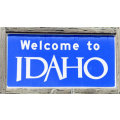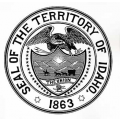If you aspire to become a registered nurse (RN), it could be worthwhile to consider pursuing an associate’s degree in nursing (ADN). ADN programs require relevant courses in hard sciences, such as biology and physiology, and include supervised clinical experiences. They also prepare aspiring nurses to pass the NCLEX-RN certification exam, which is required to start working as an RN.
Latest articles
Licensed practical nurses (LPNs) are critical to the healthcare system. They assist doctors and registered nurses (RNs) with everything from records keeping and office organization to providing for the care and comfort of patients. LPNs monitor patients’ symptoms, change bandages, administer medications, and keep doctors and registered nurses informed about any changes in a patient’s condition. LPNs also help to supervise a team of nursing assistants and other support staff.
Nurses are essential to the healthcare system all across the state of Idaho, taking on many of the responsibilities traditionally entrusted to doctors. With the challenges presented by an aging population, growing numbers of lifestyle diseases, and a steadily expanding healthcare system, the medical community is relying more and more on nurses, making nursing a profession in high demand. In Boise, there are plenty of job opportunities for nurses at all levels. Given the increasing responsibility in the field, it is crucial that aspiring nurses have the best training available.
One of the best ways to advance your career as a registered nurse (RN) is to pursue a master of science in nursing (MSN) degree. The MSN is a postgraduate degree, which enables nurses to gain expertise and specialize in new careers as educators, healthcare administrators, nurse practitioners, nurse midwives, nurse anesthetists, and other roles in a number of specialties. With the competitive nature of the job market, earning an MSN will give you the chance to set yourself apart in the nursing field and gain opportunities for advancement.
Registered nurses (RNs) play an essential role in the healthcare community, taking on many of the responsibilities that have been traditionally ascribed to physicians. RNs plan, implement, and assess a high level of patient care, and manage a team of other nurses and medical support staff. Because registered nurses have become so instrumental to providing care, the need for qualified candidates continues to grow.
Idaho has a steadily growing population and an expanding healthcare system, meaning that registered nurses (RNs) will be in high demand in the years to come. If you aspire to become a registered nurse, it could be worthwhile to consider pursuing an associate’s degree in nursing (ADN). Associate’s degrees in nursing only take two years to complete, and programs are offered at most community colleges. This makes the ADN the quickest and most affordable way to launch your career as an RN.
Licensed practical nurses (LPNs) are absolutely vital to our modern healthcare system. They assist physicians and registered nurses (RNs) with everything from records keeping and office organization to providing for patient care and comfort. LPNs monitor patients’ symptoms, change bandages, administer medications, and keep doctors informed about any changes in a patient’s condition. LPNs also help to supervise a team of nursing assistants and other support staff.
Nurses have become critical to the healthcare system in Hawaii, taking on many of the responsibilities that have traditionally been entrusted to doctors. With the medical community relying more and more on nurses, and the need for healthcare on the rise, nursing has become a profession in high demand. In Honolulu, there are plenty of opportunities for nurses at all levels. Given the increasing responsibility in the field, it is essential that aspiring nurses have the best training available.
Certified nursing assistant (CNA)
Many registered nurses (RNs) choose to continue their studies by pursuing master of science in nursing (MSN) degrees. The MSN is a postgraduate degree that gives nurses the qualifications required to become health policy experts, public health workers, educators, nurse administrators, clinical nurse leaders, and more. MSN programs also allow nurses to pursue careers as nurse practitioners (NPs), nurse midwives, or nurse anesthetists, specialty fields that give nurses more responsibility in the workplace and confer significantly higher salaries.
The best educational option for aspiring registered nurses (RNs) is the bachelor of science in nursing (BSN) degree. Although it is possible to become an RN through a two-year associate’s degree program, it is becoming increasingly important to earn a BSN degree to remain competitive on the job market. BSN programs generally take four years to complete, giving each student a comprehensive nursing education that includes courses in hard sciences, such as biology and physiology, and hands-on training through supervised clinical trials.










